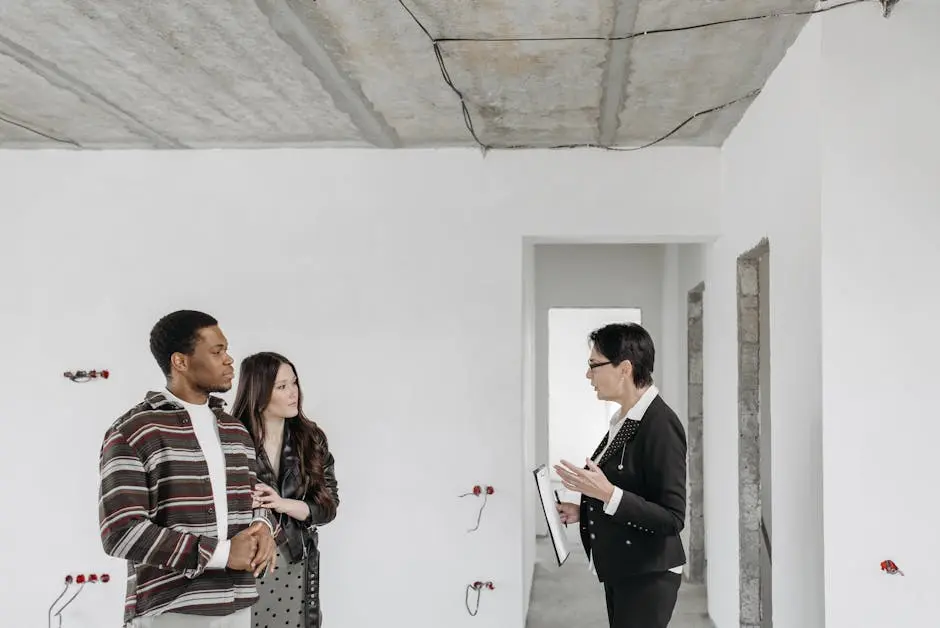Buying your first home is an exciting milestone, but it comes with its fair share of challenges. Among these, understanding the importance of a new home inspection can seem daunting. In this blog, we’ll explore why this step is crucial for first-time homebuyers and how it can save you from potential headaches down the road.
Why a New Home Inspection Matters
A new home inspection provides an in-depth look at the property’s condition. It can reveal hidden problems that are not evident during a casual walk-through. Understanding these potential issues can help first-time buyers negotiate better deals and avoid costly repairs.
For many first-time homebuyers, the excitement of purchasing a new house can sometimes overshadow the intricate details that require attention. An inspection arms you with the necessary information about the home’s current state, functioning as a safety net against future surprises. This step is like taking the home for a ‘test drive’ before fully committing to the purchase. By having a licensed inspector assess areas such as the roof, foundation, and electrical systems, you gain insights that are crucial for making informed decisions. In fact, the slight upfront cost of an inspection is incomparable to the peace of mind it offers.
Common Issues Identified During Inspections
Even new homes can have issues such as electrical faults, plumbing leaks, or structural concerns. An inspection can highlight these problems, giving you the chance to address them with the builder before closing the deal.
Some people might mistakenly assume that a newly constructed home is free from defects, yet this is often not the case. Cumbersome mistakes during construction or the use of substandard materials can result in problems like improper ventilation, uneven floors, and minor yet impactful structural imperfections. For instance, plumbing leaks might not be immediately visible but can cause significant water damage over time if left unchecked. Having an inspection helps identify such issues before they evolve into bigger problems, thus saving you money and stress in the long haul.
Additionally, an inspection can uncover problems that are less apparent at first glance. Things like poor insulation or inadequate drainage systems might not seem urgent initially but can lead to higher utility bills or structural damage respectively. Identifying such issues early provides an opportunity to discuss potential resolutions with builders or sellers, ensuring that the necessary corrections are made. In summary, inspections provide valuable insights that go beyond the surface, protecting your investment from avoidable setbacks.
The Financial Implications of Skipping an Inspection
Skipping a home inspection might seem like a way to save money, but it can lead to financial burdens in the long run. Unidentified problems can lead to significant repair costs, which could have been avoided with a thorough inspection.
Imagine moving into your dream home only to discover that the roof leaks during the first rainstorm or the heating system is faulty come winter. The costs of addressing such unexpected issues can be overwhelming, especially when you’re already navigating other expenses associated with a new home. While it might be tempting to cut costs by foregoing an inspection, remember that this small saving can lead to substantial future financial strain. An inspection serves as a critical preemptive measure, ensuring you fully understand the financial obligations tied to your new property.
How to Choose a Qualified Home Inspector
Finding a qualified home inspector is crucial. Look for certified professionals with good reviews and ample experience. It’s wise to do some research and ask for recommendations to ensure you’re hiring someone capable and reliable.
Start by exploring professional organizations such as the American Society of Home Inspectors (ASHI) or the International Association of Certified Home Inspectors (InterNACHI) to locate certified practitioners. These associations uphold strict standards of practice, meaning their members are well-trained in spotting problems and providing detailed insights into a home’s condition. Additionally, reviews from past clients on websites or recommendations from friends and family can help narrow your choices. An inspector’s experience, combined with their methodical approach, significantly enhances the inspection’s effectiveness, better protecting you and your investment.
What to Expect During the Inspection Process
Understanding what happens during an inspection can alleviate any anxiety you might have. Typically, an inspector will examine the home from roof to foundation, providing a detailed report on their findings. This process usually takes a few hours and offers peace of mind.
During the inspection, you could expect the inspector to meticulously examine aspects like the roofing and attic spaces for leaks or damages, plumbing for leaks or faulty fixtures, electrical systems for safety and compliance, and structural elements like foundations for any faults or signs of damage. They might also check heating, ventilation, and air conditioning (HVAC) systems for performance and potential issues. The exhaustive nature of the inspection process allows homeowners to get a holistic understanding of their property’s health. Usually, the findings are compiled into a comprehensive report, providing clear visual and written details that you can discuss with relevant parties to hash out any issues. These insights are invaluable, paving the way for informed discussions with builders or sellers.
Using the Inspection Report for Negotiations
An inspection report is a powerful tool during negotiations. It equips you with factual information that can be used to request repairs or revise the purchase price, ultimately ensuring you get the best value for your investment.
One of the standards in real estate is leveraging inspection reports to renegotiate terms with sellers. By presenting documented issues, you open avenues to discuss price adjustments or conditions where the seller addresses the problems before finalizing the sale. Whether it’s asking for a reduction in price commensurate with the repair costs or requesting certain repairs to be completed before moving in, the inspection report presents factual evidence that can drive your case forward effectively. This negotiation process is a key component of purchase agreements, ensuring that necessary repairs and fair pricing are secured before closing a deal. Understanding how to use these reports effectively can save money, prevent future headaches, and guarantee satisfaction with your newly acquired property.
Making an Informed Investment
Embarking on the journey of buying a first home is thrilling yet filled with hurdles. A new home inspection is a critical tool to ensure you’re making a sound investment. By identifying potential issues early and understanding their implications, you can move forward with confidence. Remember, knowledge is power, especially in the world of real estate.


